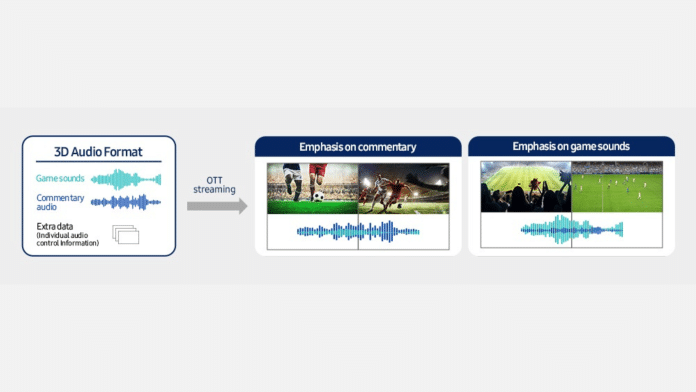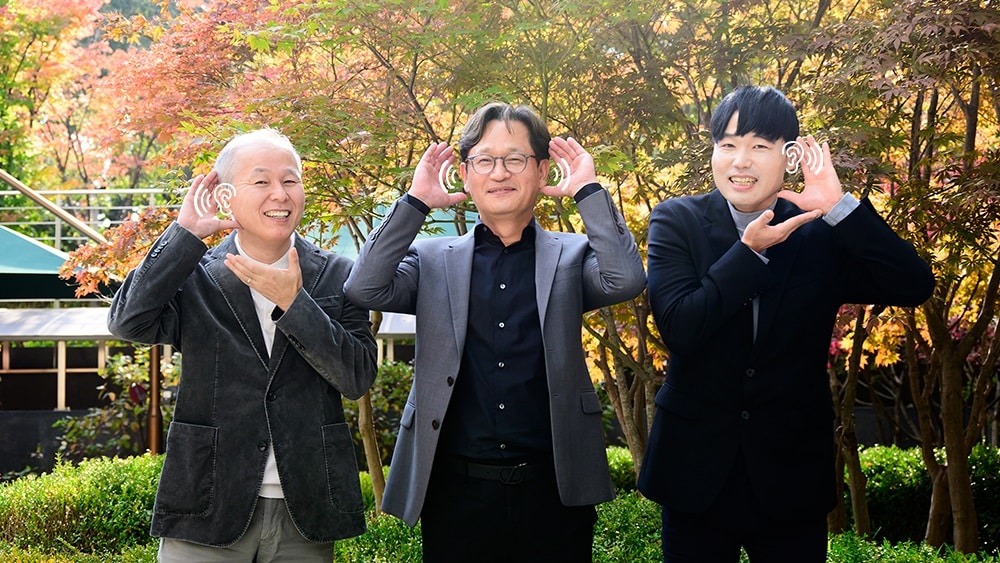
The development of IAMF stemmed from the recognition of limitations in existing 3D audio solutions, such as Dolby Atmos. Samsung’s research team identified that current technologies fail to properly interpret 3D sound information, resulting in a diminished audio experience.
IAMF addresses these shortcomings by incorporating three key features: vertical sound, AI scene analysis, and user-customized audio. “IAMF enhances sound realism by allowing listeners to experience audio in front, behind, or to either side, as well as above or below them. This means that when IAMF technology is integrated into home TV speakers and soundbars, listeners can experience sounds like birds flying overhead on their TVs,” explained WooHyun Nam from Samsung Research’s Visual Technology Team.

IAMF also employs AI and deep learning algorithms to intelligently analyze scenes and adjust audio levels accordingly. For instance, during scenes with prominent background music or soundtracks, IAMF balances the sound to ensure the main focus remains on the dialogue.
Likewise, personalized audio customization options further enhance the IAMF experience by allowing users to tailor the audio to their preferences. These options include adjusting the intensity of sound effects in action scenes or enhancing dialogue clarity during conversations.
Samsung’s adoption of Dolby Atmos in its TVs in 2022 signaled the company’s commitment to immersive audio experiences. However, its decision to stick with its own HDR10+ format over Dolby Vision raised questions about its future relationship with Dolby Atmos.
With the advent of IAMF, Samsung appears to be charting its course in the 3D spatial audio space, potentially signaling a shift away from Dolby Atmos in future Samsung TVs.















